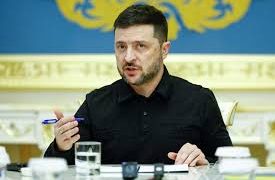Ghana’s Washington Embassy Staff Under Investigation for $4.8M Fraud Scheme
The Minister of Foreign Affairs and Regional Integration, Samuel Okudzeto Ablakwa, has disclosed explosive findings in an expanding corruption probe that implicates multiple actors in a long-running illicit operation at the country’s diplomatic mission in Washington, D.C.
Addressing Parliament, the Minister detailed how a locally recruited staff member, Fred Kwarteng, leveraged systemic digital lapses to orchestrate an unauthorized business that generated upwards of $4.8 million annually, exploiting visa and passport applicants with minimal oversight and institutional resistance.
Digital Failure Fuels Exploitation
At the heart of the scheme was Ghanaian Transit Courier (GTC), a company allegedly run by Kwarteng and his former spouse. The firm embedded private links onto unofficial embassy websites to reroute applicants—unaware of the breach—to its own portal, where it levied charges of $29.75 per applicant for courier services and up to $100 for application form assistance. Nearly all applicants—reportedly 99%—were funneled through GTC’s platform.
The Minister revealed that Ghana’s broader digital harmonisation effort, led by EMH Global since 2020, was resisted by the Washington mission. “Had this integration been implemented, this illicit redirection would have been curtailed,” he told lawmakers.
On average, GTC processed 250 visa or passport deliveries daily, translating into a courier revenue stream of approximately $1.86 million annually. With ancillary services included, total annual income from the unauthorised business was estimated at over $4.8 million.
No Remittances, No Records
“There is no record of any of these funds being remitted to the Ministry,” the Minister said. “This is nothing short of exploitation of desperate applicants and a blatant abuse of public trust.”
The revelations come in the wake of the temporary closure of the Mission due to service delivery concerns, and are part of sweeping internal reforms to restore accountability and public confidence.
From Lone Actor to Institutional Network
Contrary to initial assumptions that the operation was the act of a single rogue employee, Minister Ablakwa indicated the scheme had broader institutional enablers. “There appears to be a network of individuals who facilitated or benefited from this operation,” he said, citing admissions by both former and current embassy staff.
Investigators have traced GTC’s corporate structure to both Kwarteng and his former wife, raising significant conflict-of-interest concerns. Furthermore, the Auditor-General had flagged procurement and financial irregularities at the Mission two years prior—issues that, the Minister said, were “either ignored or insufficiently addressed.”
Legal and Institutional Response Underway
In response, the Ministry has referred the matter to the Economic and Organised Crime Office (EOCO) and the Attorney General for asset tracing and prosecution. “This directive was issued by the President, and we have acted on it without delay,” the Minister affirmed.
The full findings of the Internal Investigative Committee are expected imminently, and further prosecutions and administrative sanctions could follow.
Diplomatic Reform Now Urgent
The scale and sophistication of the scandal have exposed critical weaknesses in oversight across Ghana’s diplomatic network. The Minister called for urgent institutional reform, particularly in financial transparency and digital governance.
“We must reflect deeply on how a system was created to enrich one man at the perceived bottom of the hierarchy,” he said. “But clearly, he had help.”
The scandal marks one of the most serious breaches of fiduciary trust within Ghana’s foreign service in recent years and is expected to trigger far-reaching consequences across the diplomatic corps.







